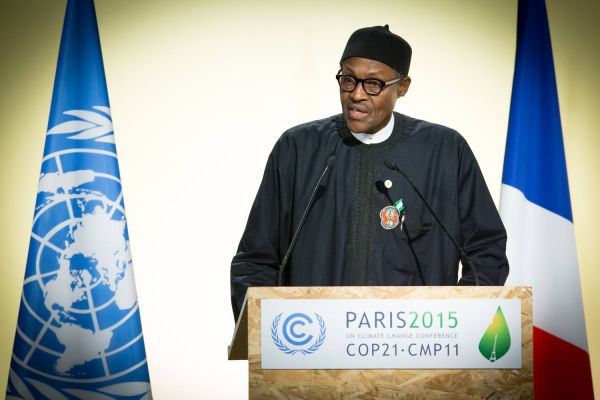
With 14 million people facing hunger in southern Africa as the El Niño weather pattern, the worst in over three decades, exacerbates drought, the United Nations World Food Programme (WFP) warned today that it faces critical funding challenges in scaling up food and cash-based aid.
“The number of people without enough food could rise significantly over coming months as the region moves deeper into the so-called lean season, the period before the April harvest when food and cash stocks become increasingly depleted,” WFP said in a news release. “Particularly vulnerable are smallholder farmers who account for most agricultural production.”
The cyclical El Niño pattern of devastating droughts on some regions and catastrophic floods in others that can affect tens of millions of people around the globe, is already leading to even worse drought across southern Africa, affecting this year’s crops.
With little or no rain falling in many areas and the window for the planting of cereals closing fast or already closed in some countries, the outlook is alarming.
“Driving through southern Zambia, I saw fields of crops severely stressed from lack of water and met farmers who are struggling to cope with a second season of erratic rains,” WFP Executive Director Ertharin Cousin said at the end of a visit to drought-prone southern Zambia.
“Zambia is one of the biggest breadbaskets in the region and what’s happening there gives serious cause for concern not only for Zambia itself but all countries in the region.”
Worst affected by last year’s poor rains are Malawi with 2.8 million people facing hunger, Madagascar with nearly 1.9 million, and Zimbabwe with 1.5 million and last year’s harvest reduced by half compared to the previous year due to massive crop failure.
In Lesotho, the Government has declared a drought emergency and some 650,000 people, a third of the population, do not have enough food. As elsewhere, water is in extremely short supply for both crops and livestock. Also causing concern are Angola, Mozambique and Swaziland.
Food prices across southern Africa have been rising due to reduced production and availability. The price of maize, the staple for most of the region, is 73 per cent higher in Malawi than the three-year average for this time of year.
“I’m particularly concerned that smallholders won’t be able to harvest enough crops to feed their own families through the year, let alone to sell what little they can in order to cover school fees and other household needs,” Ms. Cousin said.
WFP is working with Governments, regional organizations and other partners on contingency, preparedness to secure food supplies and protect people’s livelihoods.
WFP assessment analysts estimate that more than 40 million rural and 9 million urban people in the region live in geographic zones that are highly exposed to the fall-out from El Niño. South Africa, the major breadbasket of the region, has indicated that this El Niño-induced drought is the worst the country has suffered in more than half a century.
One particularly worrying symptom of southern Africa’s vulnerability to food and nutrition security is the alarming rate of chronic malnutrition. Levels of stunting among children in Madagascar, Malawi, Mozambique and Zambia are among the worst in the world.
This affects children’s physical growth, cognitive development, as well as their future health and productivity.











Starting with the 2014 and 2015 almost all of southern Africa: Madagascar, Malawi, Mozambique, Zambia, Zimbabwe and Tanzania observed severe droughts. Reseeding gave nothing – plants either did not germinate, or dried.
I am a developer of environmental programs for the production of fresh water and irrigation areas.
My programs are able to recover in these countries all the rivers, underground reservoirs and ground and surface water.
Will increase the area of productive land and pastures, and the area for the cultivation of new forests
Form the tens of thousands of new farmers to build storage facilities and processing of products, and more.
The cost of work – 1.2 – $ 1.5 billion, but this amount will be adjusted on the spot. Profit in the amount of 2.0-2.3 dollar on dollar invested will start to flow through the three years through the sale of water and all kinds of agricultural products.
Deciding to speed in time to get a crop in the middle and the end of 2016.
Sincerely, a developer of environmental programs, Victor Rodin. 30100, Ukraine, Khmelnytsky region. Neteshin (Khmelnitsky NPP). Tel. Kiev Star: 961336344. Internet address: rodin.vik@yandex.ua; dorosydos@gmail.com. Skype – kuzmitch36.
— — —
Начиная с 2014 года и практически весь 2015 год на юге Африки: Мадагаскар, Малави, Мозамбик, Замбии, Зимбабве и Танзания наблюдались жесточайшие засухи. Пересев ничего не дал – растения либо не взошли, либо высохли.
Я являюсь разработчиком экологических программ по производству пресной воды и орошению территорий.
Мои программы способны восстановить в указанных государствах все реки, наземные и подземные водоёмы, и подпочвенные воды.
Прирастить площади продуктивных земель и пастбищ, и площади для выращивания новых лесов
Образовать десятки тысяч новых фермерских хозяйств, построить помещения для хранения и переработки продукции, и многое другое.
Стоимость работ – 1,2 – 1,5 миллиардов долларов, но эта сумма будет корректироваться на месте. Прибыль в размере 2,0-2,3 доллара на вложенный доллар начнёт поступать через три года за счёт продаж воды и всех видов сельхозпродукции.
Решать нужно быстро, чтобы успеть получить урожаи в середине и конце 2016 года.
С уважением, разработчик экологических программ, Виктор Родин. 30100, Украина, Хмельницкая обл. г. Нетешин, (Хмельницкая АЭС). Тел. Киев-Стар: 961336344. Адреса В Интернете: rodin.vik@yandex.ua; dorosydos@gmail.com. Скайп – kuzmitch36.